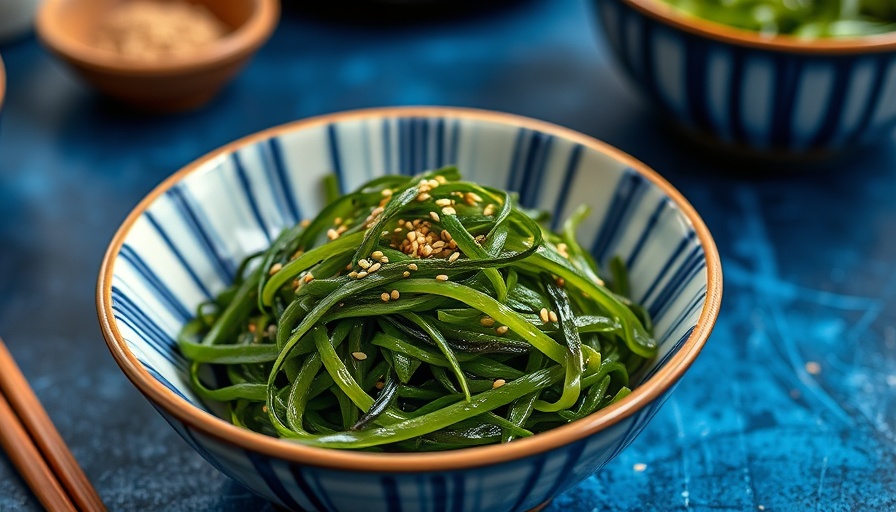
Understanding Iodine: A Key Nutrient for Health
Iodine is an essential nutrient that plays a critical role in our overall health, particularly for maintaining thyroid function. Inadequate iodine intake can lead to various health problems, including goiter and developmental issues. With many people unaware of their iodine levels, it becomes imperative to explore the natural sources of this vital nutrient, especially for those embarking on plant-based diets.
Why the Focus on Sea Vegetables?
Typically overlooked, sea vegetables such as nori, dulse, and arame stand out as the healthiest natural sources of iodine. With the capacity to provide more than 2,000% of the daily iodine requirement in just one gram, seaweed’s robust iodine content positions it as a dietary powerhouse. This is particularly significant as plant-based diets often struggle to meet iodine needs, given the limited iodine present in fruits and vegetables.
Can Dairy Products Meet Our Iodine Needs?
In the United States, dairy products supply about 25% to 50% of daily iodine needs. It's worth noting, however, that the iodine found in cow's milk is often a byproduct of iodine-based disinfectants used in dairy farming. This method raises concerns about the reliability of dairy as a sole iodine source, particularly for those who consume little to no dairy.
Addressing Common Misconceptions About Soy
There's a longstanding debate regarding soy products and their influence on thyroid health. Contrary to fears rooted in early studies, recent findings show that individuals with normal thyroid function can consume soy without significant concern. However, it’s wise for those who consume soy frequently to ensure their iodine intake remains sufficient. The profitability and popularity of soy do not negate the requirement for balanced nutrition.
The Importance of Iodized Salt in Your Diet
Iodized salt plays a role in maintaining iodine levels, yet only 53% of salt meant for home use is iodized, highlighting a significant gap in public health efforts. Additionally, many processed foods do not include iodized salt, further complicating iodine intake for many consumers. Although reducing salt usage is encouraged for overall health, strategies for ensuring adequate iodine intake should also be adopted.
Potential Risks of Overconsumption
As with many nutrients, too much iodine can lead to health issues such as hyperthyroidism. The case of a woman experiencing racing heartbeat and anxiety after excessive kelp intake underscores the need for moderation. Therefore, while integrating sea vegetables into meals can aid iodine sufficiency, it's advisable to be cautious with amounts consumed.
Practical Tips for Ensuring Adequate Iodine Intake
For those looking to enhance their iodine intake naturally without compromising their health, here are a few practical tips:
- Incorporate Sea Vegetables: Add nori wraps to sushi, use dulse flakes in salads, or enjoy a bowl of seaweed soup.
- Choose Iodized Salt: If salt is used in cooking, ensure it’s iodized to boost iodine levels.
- Consider Supplements: This may be a viable option for individuals following strict vegan or vegetarian diets.
- Regular Monitoring: Periodically check iodine levels through lifestyle assessments or medical check-ups.
This awareness allows individuals to make informed dietary choices that align with their health objectives. Remember, it isn't about isolating iodine but understanding how it fits into the broader mosaic of a nutrient-rich diet.
Final Thoughts
Iodine is a crucial element often relegated to the sidelines in discussions about nutrition. By educating ourselves about its sources and the importance of balanced intake, we can take proactive steps toward improved health and wellness. For a thorough understanding of personal vitamin and mineral needs, including iodine, consulting with a healthcare provider may be beneficial.
Take control of your health today! Explore the diverse array of natural iodine sources available, and consider integrating more sea vegetables into your meals. Your thyroid will thank you.
 Add Row
Add Row  Add
Add 




 Add Row
Add Row  Add
Add 

Write A Comment